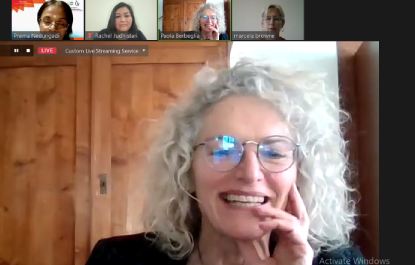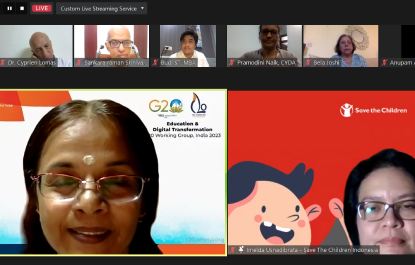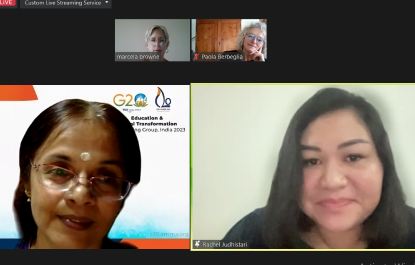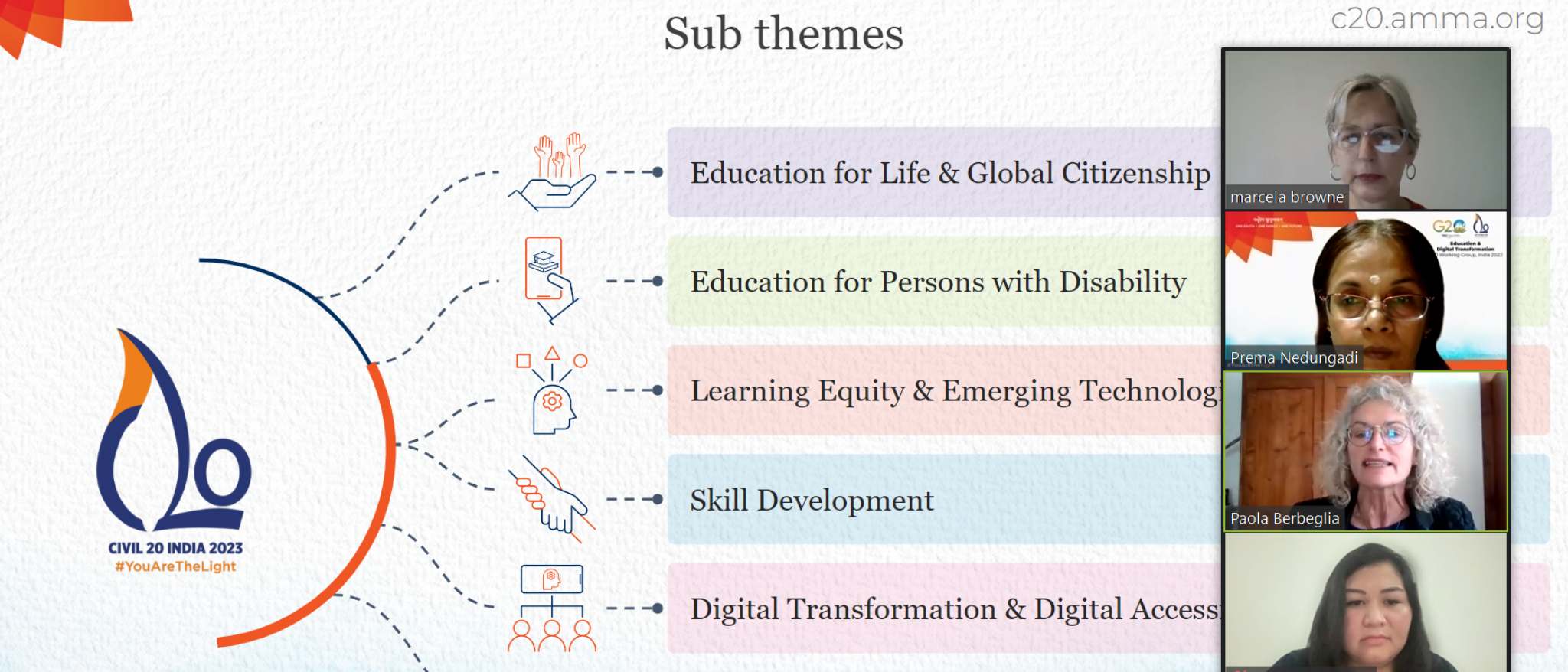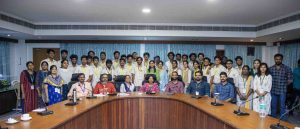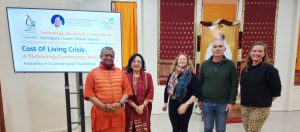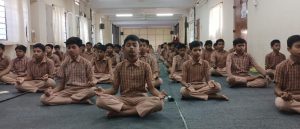The C20 Education Coordinators of Prior G20 Presidency Countries, an online event organized by the Education and Digital Transformation working group, was held on March 16, 2023. The Education Coordinators represented Argentina, Italy, Japan, and Indonesia. Over 56 participants attended the online event, with representation from India and abroad. The international attendees represented Togo, the US, the UK, Mexico, Kenya, and Pakistan, among others.
The event aimed to connect with past C20 Education Coordinators on a common platform to discuss critical concerns about inclusive, equitable, relevant, and quality lifelong education for all. The panel discussion also addressed the transformational potential of education by harnessing appropriate technologies. The panelists shared their insights and put forward suggestions to formulate actionable and implementable policy recommendations.
C20 EDT Coordinator Dr. Prema Nedungadi, Director of Amrita CREATE, and Chairperson, School of Computing, Amrita Vishwa Vidyapeetham, welcomed the eminent speakers. Dr. Nedungadi, while introducing the speakers, said, “These leaders have experienced in education at a country and global level. And we look forward to hearing the policy from four different countries.” She added that beyond education the discussion would also take into consideration best pratices and ways “to promote, preserve cultural, provide livelihood, opportunities, address accessibility, e-governance services, open source solutions.”
Imelda Usnadibrata, Head, Save the Children, Indonesia, represented the C20 working group on global education and digitalization. She outlined three priority areas that include: safe and quality education; strengthen blended learning strategies for an interactive education system; and solidarity and multi-stakeholder partnerships. She said, “The first priority is access to free, safe, and inclusive quality, education for all” and prioritize marginalized children, youth, and adults.
Imelda pointed out that equitable digital access through improved connectivity and infrastructure and providing offline and online learning facilities for equal access to education can help overcome the digital divide. It can also facilitate learners to digital technology, which includes those with special needs, and strengthen the public education system. However, the strict regulatory framework for the private sector facilitates free and open access to technology tools and materials. Capacity building of teachers is essential.
Emphasizing post-pandemic recovery, she said access to education and professional training could enable skill development, stressing the need to build a resilient education system. Three recommendations include strengthening the rules; increasing resource mobilization capacities to reach the larger geographical area; and government to provide larger room to create an equal partnership with all education stakeholders and scaling up best practices. She said these recommendations would help prepare children and youth for future challenges and opportunities.
Marcela Browne was a member of the working group on education in Argentina and Japan. She is an expert in designing and managing social policies and responsibilities for education. Drawing attention to the current challenges that include human rights, climate crisis, and lack of sense of belonging are the problems citizens face, the only way to address it, she said, was by strengthening the education system. A conducive learning environment and approaches of justice, social equity, global solidarity, inclusion with quality, and a social model to address the diversity of people without any discrimination in learning.
According to her, lack of empowerment and financial investment in education are the two significant barriers to transforming education. The pandemic weakened the education system. Several factors contributed to this situation, which include the lack of technological connectivity, access to devices, and citizens’ participation in an equitable distribution of education. She recommended sustainable education and skill development that can lead to empowerment.
Dr. Paola Berbeblia is an international education lead who chaired Italy’s C20 Education working group. She has several decades of experience in teaching and as a research coordinator of several international, national, and local development projects in the social health and educational sectors. Her focus on global citizenship education involved strengthening mainstream education and emphasized content, concept, and competency. She also insisted on policy coherence and allocation of financial resources to promote equality, resilience, and transformative education systems. However, she said that digitalization for access to multiple models and ethical digital education for knowledge transformation was the need of the hour.
Rachel Arinii Judhistari led the C20 sub-working group on Digitalization in Indonesia. She highlighted the importance of rights to digital citizens to provide digital access to diverse, more equitable, and inclusive content. Two critical aspects highlighted included content created by women, barrier-free access, and locally relevant content in local languages. Alongside digital rights, she emphasized freedom of expression, cross-border data flow, and free knowledge.
Free knowledge models or platforms with the intention of knowledge creation through websites from trusted sources available are paid media, subscription-based. Some additional points highlighted include the importance and protection of online freedom of expression and copyright protection. Her final recommendation was to formulate progressive policies.
Kabir Darshan Singh works with Wikimedia Foundation. The CSO is committed to engaging people in developing educational content on a free license in the public domain. Sharing the philosophy of the Wikimedia Foundation, he said, “We are committed to imagining a world in which every single human being can share in the sum of whole knowledge.” He believes in a free and open internet ecosystem, which is pivotal for digital transformation. The internet is a universal enabler of education since it promotes the development of software where learning takes place on digital platforms.
He stated that discrimination, limited or lack of access to education, and digital access would hamper the digital transformation of education. Citing the increased interference and restricting access to specific knowledge platforms hinders the development of global citizenship and insists on the policy recommendation to limit content moderation.
